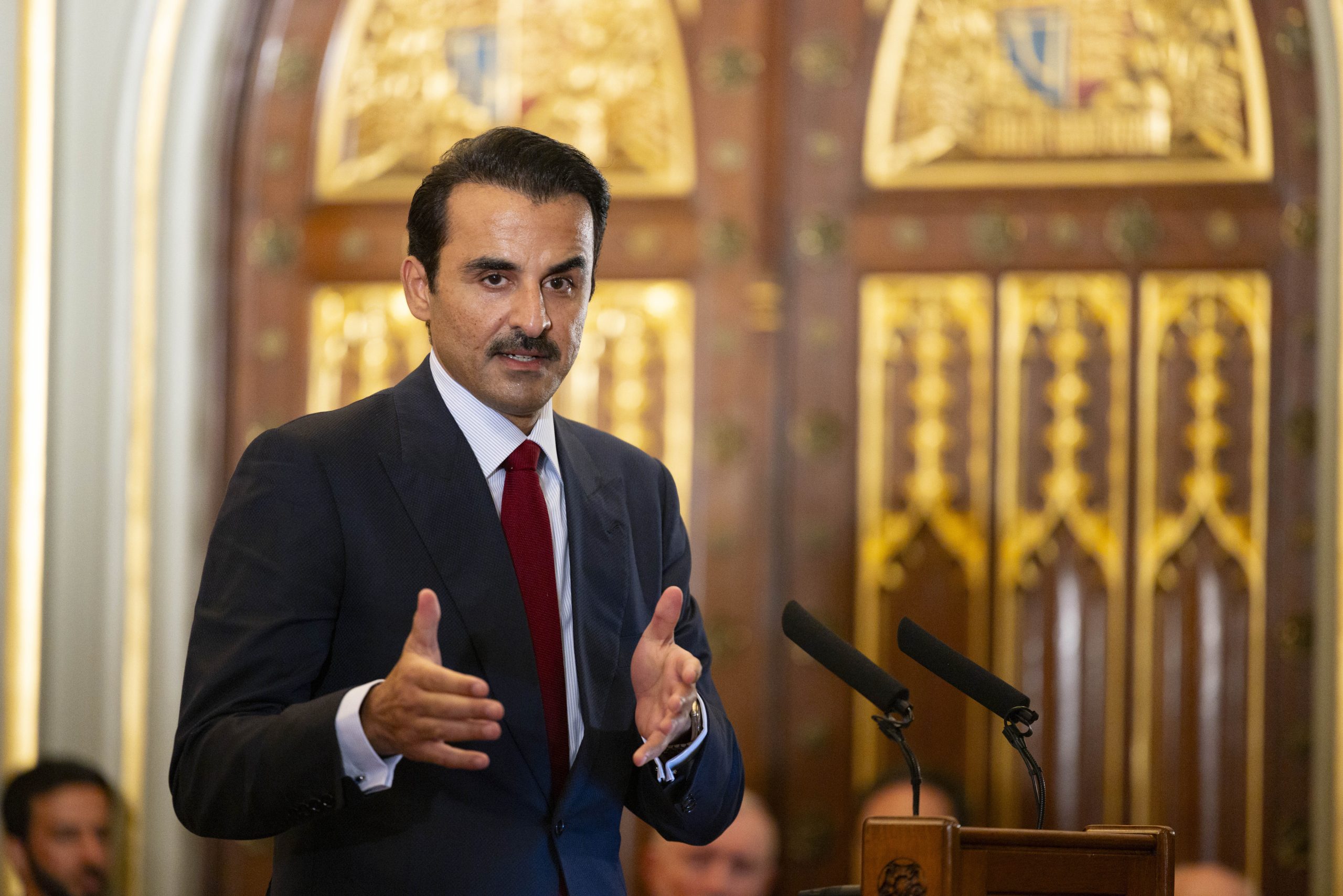
A government minister has hinted that residents’ wallets could take a hit as the country grapples with lower energy prices and faces its first budget deficit in more than a decade.
Speaking at a lecture today, Saleh bin Mohammed Al Nabit, who leads Qatar’s Ministry of Development Planning and Statistics (MDSP), said it is “urgent” for the country to seek new revenue sources such as taxes and better “rationalize” state support programs.
Al Nabit made the remarks at Carnegie Mellon University in Qatar this afternoon, a week after Qatar’s Emir told the country that the state can no longer “provide for everything.”

In his speech, Al Nabit briefly touched on the impact that lower energy prices are having on the country’s finances.
While the government has already cut the budgets of organizations such as Qatar Foundation, Qatar Museums and Al Jazeera, the official’s remarks are the first suggestion that individual residents may also have to shoulder the financial burden:
It has “become urgent…to consider issues such as the rationalization of support and providing it to target groups, development of the tax system and supporting the revenue side of the budget,” he said.
Al Nabit did not suggestion any specific forms of taxation. Individuals in Qatar do not pay any sales or income tax, but foreign firms pay a corporate tax rate of 10 percent, according to consulting firm KMD.
In September, Qatar’s finance minister said there were no plans to reduce the country’s subsidies on food or fuel, which make consumer petrol prices among the cheapest in the world.
The state also sells electricity and water to consumers at below-cost rates and provides these utilities free of charge to Qataris and some expats who work for government companies.

However, local utility firm Kahramaa quietly raised prices for electricity and water this fall, a move that has affected both individuals and companies.
Kahramaa operators have confirmed the hikes but not commented on them. Senior officials from the state-back utility declined to discuss the issue with Doha News during last month’s Qatar Power Summit.
IMF: Subsidies inefficient
Al Nabit’s remarks echo suggestions made by the International Monetary Fund (IMF), whose managing director – Christine Lagarde – is coincidently visiting Qatar this week.
The organization has called on countries across the region to rethink their approach to subsidies in recent years.

In a 2014 paper, the IMF argued that discounting prices for electricity, fuel and other consumer goods are an inefficient way of sharing a country’s wealth with residents because it disproportionately benefits well-off individuals with large homes and vehicles.
Like Al-Nabi, the IMF says such state support should go to those who need it most.
In the IMF’s case, that means giving cash to poor households. In a variation of this approach, Bahrain has rolled out plans to replace its across-the-board subsidies with cash payments for citizens to incentivize them to conserve power, effectively reducing benefits for expats.
In a separate report published earlier this year, the IMF said GCC governments need to diversify their revenue sources by introducing income or sales taxes to reduce their exposure to volatile energy prices.
Population
Al Nabit used most of his speech to discuss Qatar’s National Development Strategy, a lengthy government planning document published in 2010 that sets dozens of economic, social and environmental targets for 2016.
While there have been some successes, such as the partial rollout of the Seha health insurance scheme, there appear to be few signs of progress in other areas, such as formalizing how police and health care workers respond to cases of child abuse.

When asked how many of the strategy’s goals had been achieved, Al Nabit said a final assessment has not been completed.
“There has been a great deal of advancement in the implementation of our objectives,” he said. “Other things have not been achieved.”
Most of the development strategy was prepared before Qatar was named the host of the 2022 World Cup.
This means it did not fully predict the extent of the country’s massive construction boom or the related rapid influx of blue-collar expats that has pushed Qatar’s population to 2.4 million residents, an increase of 40 percent since 2010.
Al Nabit said Qatar’s population would continue to grow in the coming years, but at a slower pace.
He suggested that many construction workers would be returning to their home countries in the coming years as their building and infrastructure projects wrap up.
“All migrant workers come to the state to (perform) specific tasks and duties. Their contract ends when their duties end,” he said.
Thoughts?







